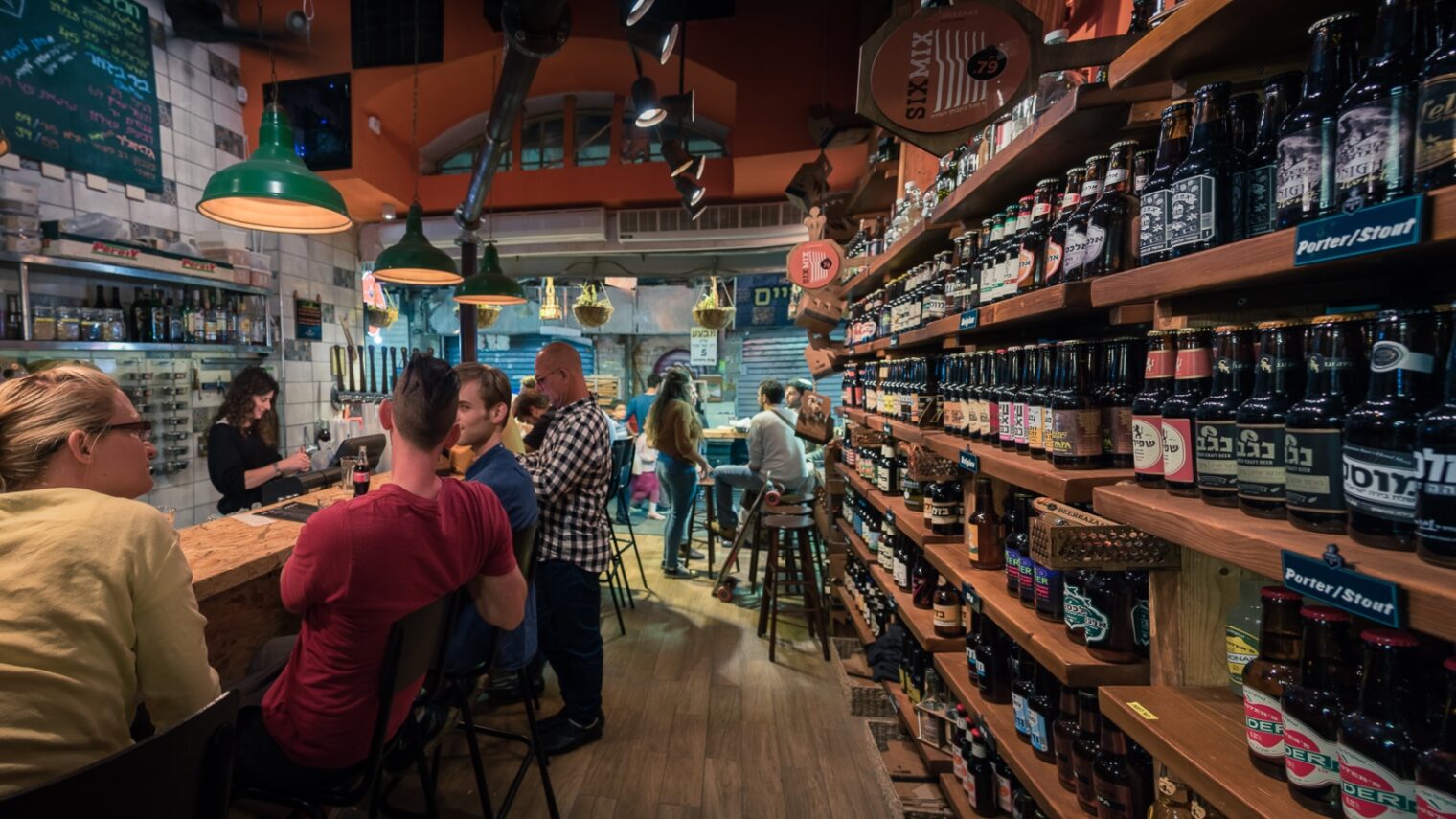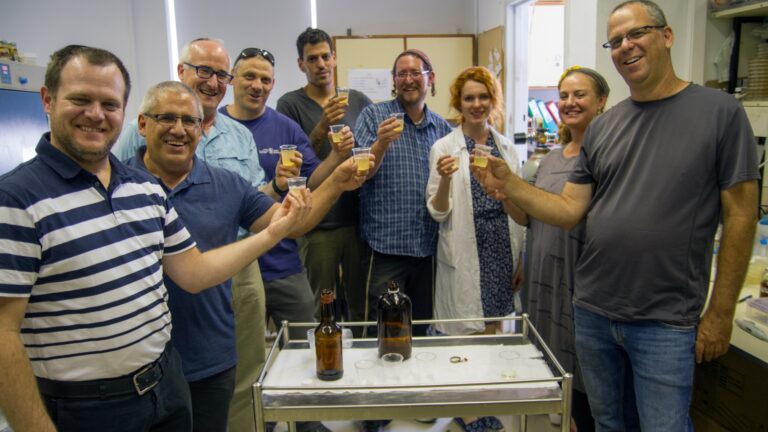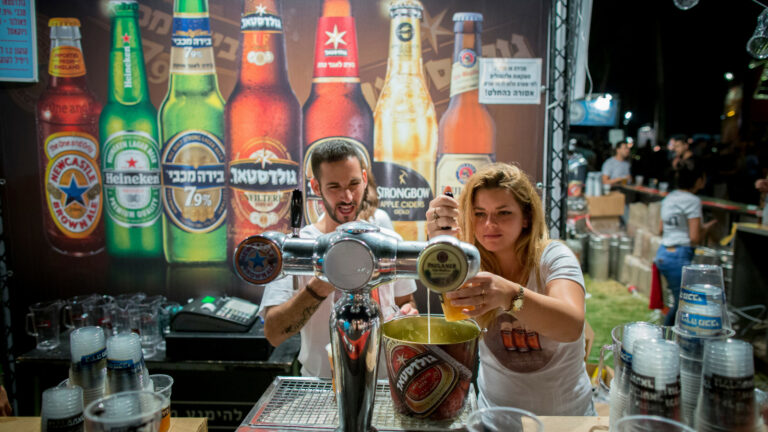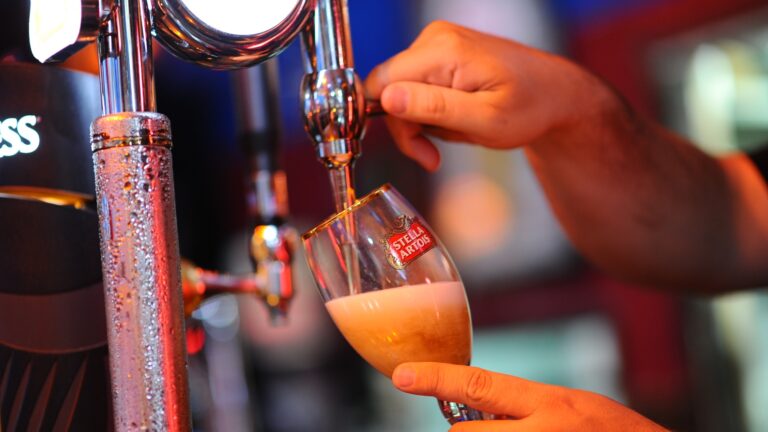The hallmark of a good craft beer is the distinctive local flavor it adds to the base of grain, hops, yeast and water.
Israeli craft beer, virtually nonexistent until a decade ago, now is available in more than 100 styles. The taste of Israel inside each bottle hints of locally sourced herbs and fruits such as mint, rosemary, date, passionfruit, mango or citron.
Another way of putting an Israeli, or Jewish, stamp on local beer is brewing special batches for holidays and seasons, similar to German Oktoberfest beer or British Christmas ale. Think pomegranate beer for Rosh Hashana in the early fall, a season marked by annual beer festivals in Jerusalem and Tel Aviv.
Israeli water itself imparts a unique aspect, says Avi Moskowitz, owner of several Beer Bazaar locations offering the brews that Israelis are producing in ever greater quantities and varieties.
“Unlike wine made with grapes native to Israel, three main ingredients in beer are not sourced here because we don’t have that industry. But the brewers take our water and make something special out of it,” Moskowitz tells ISRAEL21c.
“We’ve won global awards for our beer so obviously we’re taking it by storm and approaching it without compromise.”
https://youtu.be/mcTA3gTQS9E
Creating Israeli beer
Moskowitz is one of a handful of American expats behind the Israeli microbrewery boom. (Craft and microbrew both describe small-scale operations, with craft beers distinctive for their handmade character.)
Denny Neilson arrived from Tennessee in 2003 and began mentoring and supplying Israeli home brewers in addition to developing his Isra-Ale. Today, Neilson runs Buster’s Beverage Company, making hard cider from Israeli apples and hard lemonade from Israeli lemons, as well as spirits.
Dancing Camel, the first licensed microbrewery in Israel, started brewing in July 2006 and features flavors including Olde Pappa ale, made with date honey according to a recipe of fourth-century Talmudic scholar Rav Pappa.
Owner David Cohen, an immigrant from the New York area, says the remnants of a 5,000-year-old Egyptian brewery were found near his Tel Aviv facility.
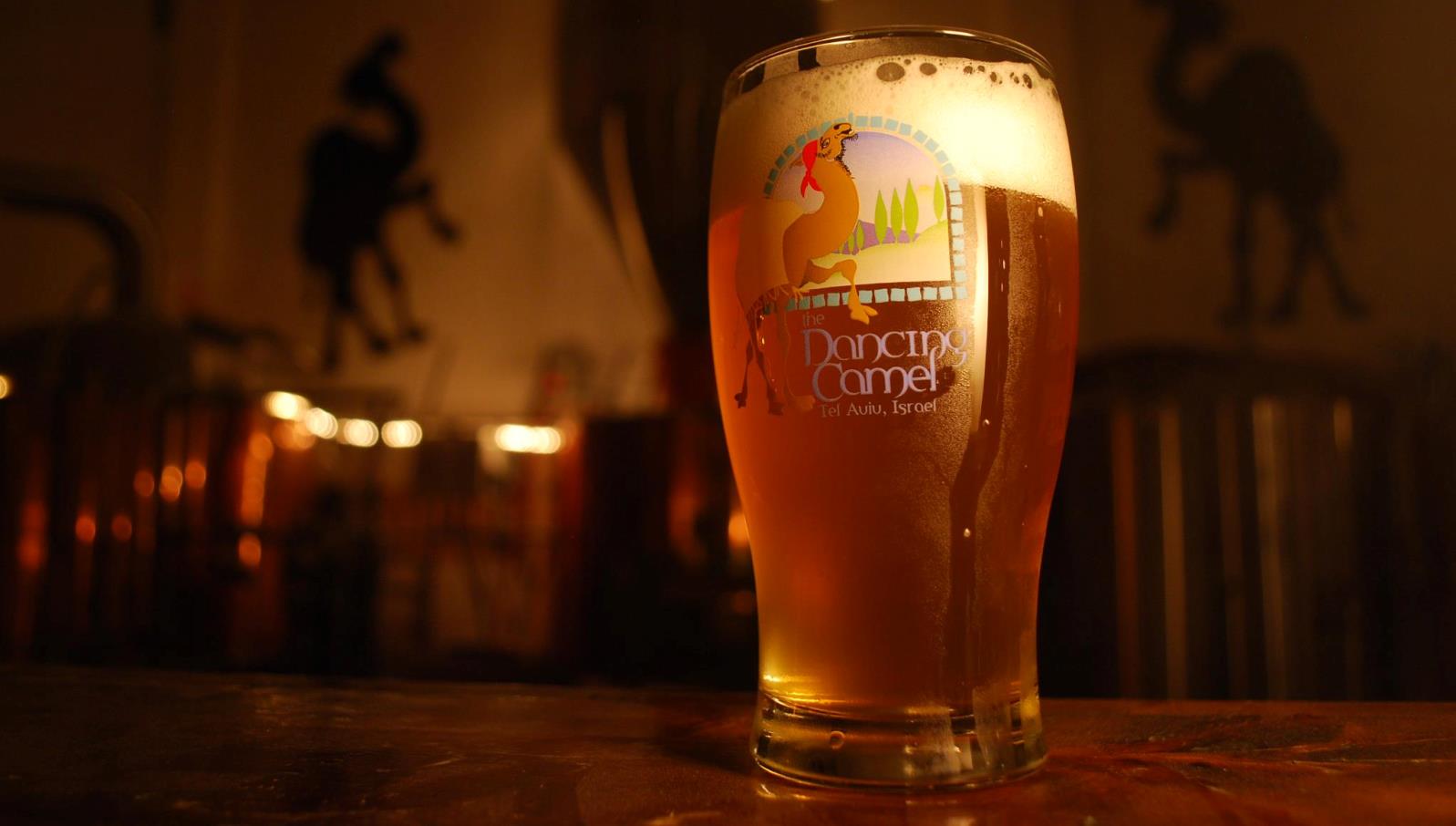
“At Dancing Camel, from the beginning our mission was to create Israeli beer by adding ingredients that reflect the herbs, spices and fruits indigenous to Israel,” Cohen tells ISRAEL21c. “I was a kid in a candy shop when I got here because there is so much of that here. It’s still a thrill for me.”
By early 2007, Golan Brewery opened and now there are somewhere between 20 and 30 licensed breweries in Israel producing their own and many other brands.
Moskowitz teamed up with Israel-born Lior Weiss, who opened a Beer Bazaar kiosk in Tel Aviv’s Carmel Market four years ago. Weiss is now the brewer at the nearly year-old Beer Bazaar Brewery in Kiryat Gat, which also produces kosher beer for several independent labels.
“That kiosk was the beginning of the idea for a platform offering quality Israeli beers for retail throughout the country,” Moskowitz says. “I wanted to help push this market.”
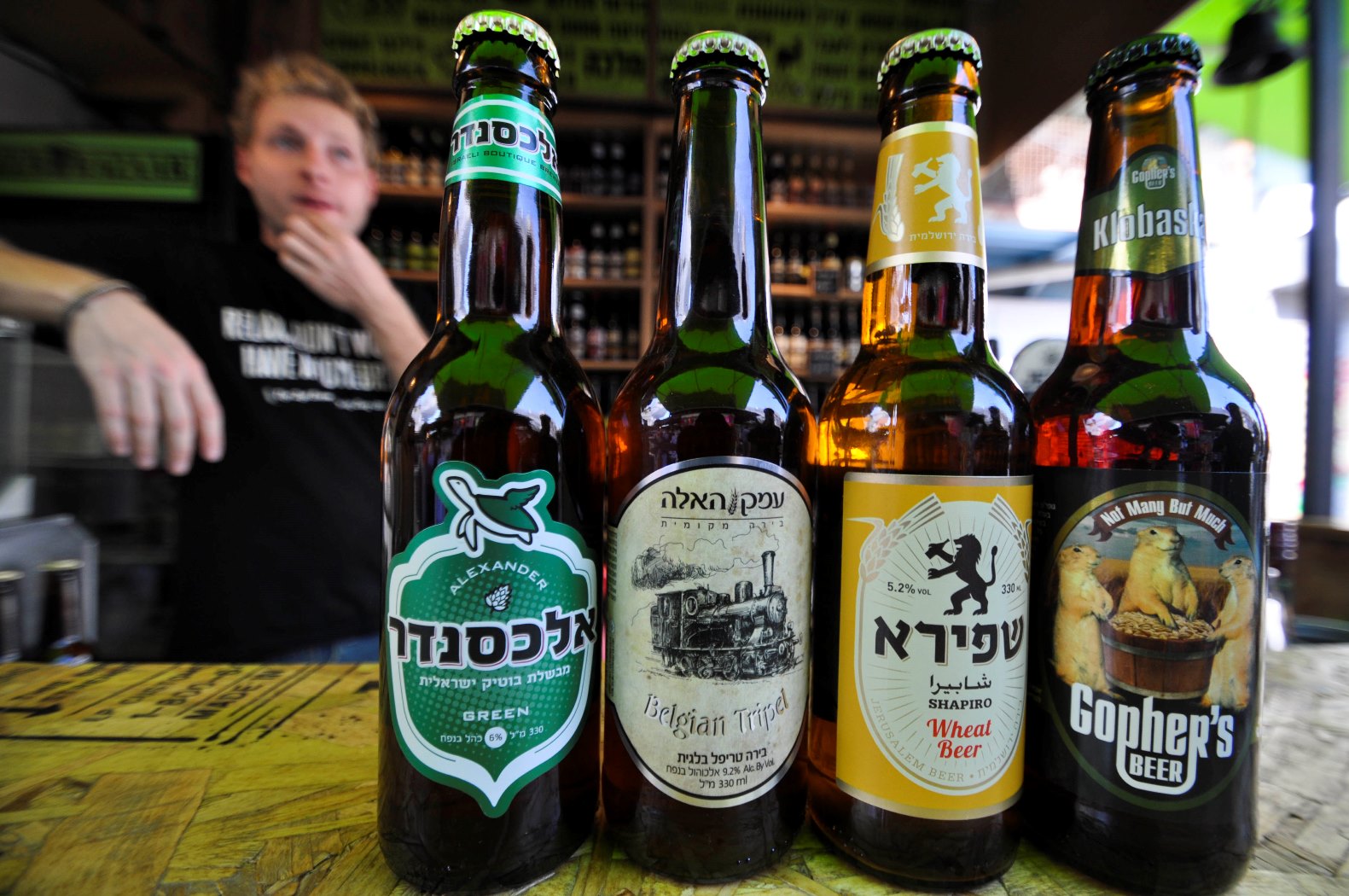
In November 2015, Beer Bazaar opened a flagship pub and retail shop for Israeli craft beers in Machane Yehuda market in Jerusalem. Newer branches in Carmel Market and Levinsky Market in Tel Aviv will be joined in March by a pop-up Beer Bazaar on trendy Rothschild Boulevard. About half of Beer Bazaar’s Jerusalem patrons are tourists, while in Tel Aviv tourists account for some 30 percent.
“People are surprised when they come in and ask for Goldstar or Carlsberg and we say, ‘We don’t have that but we can give you something similar,’ and they’re very impressed with Israeli beers. Part of what we’re doing is educating the market,” says Moskowitz.
Growing appetite
Israelis drink only about 14 liters of beer per year per capita, compared to 163 in the Czech Republic and perhaps 100 in England and the United States. However, signs point to increased appreciation for craft beer in Israel, especially as Israelis experience beer culture during travels abroad.
Bigger Israeli microbreweries such as Alexander, Malka and Shapiro are scaling up to meet demand.
Jem’s, founded by a former White House employee and a lawyer from New York, has pioneered a successful culinary-beer-and-music niche in Petah Tikva, Kfar Saba, Ra’anana and Tel Aviv in addition to selling its seven varieties across Israel.
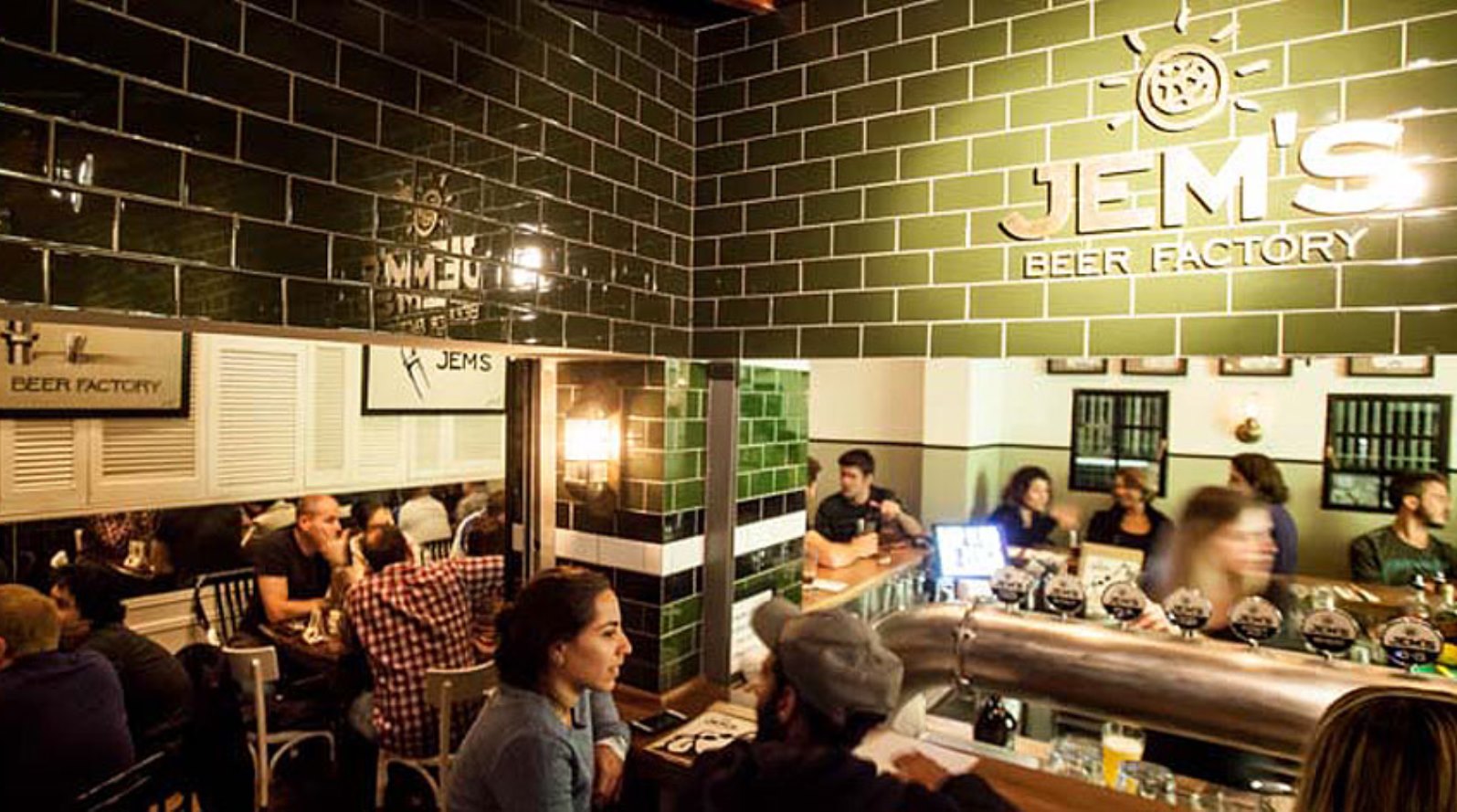
As he builds his Israeli business, Cohen also has started brewing Dancing Camel in Berlin to catch the craft-beer wave in Germany. “We are the first Israeli craft beer business in the market there, and I very much want to retain an Israeli character,” he says.
“From the beginning, I feared breweries would open that would tarnish the reputation of craft beer in Israel before it made its way out of its infancy. I’m happy to say that has not happened,” Cohen confides. “Today almost all are on a standard as high as anywhere in the world.”




